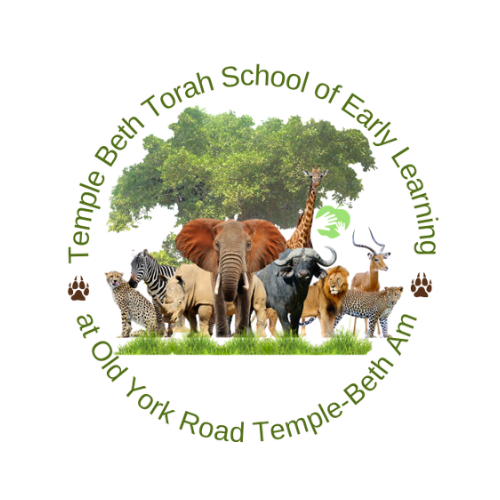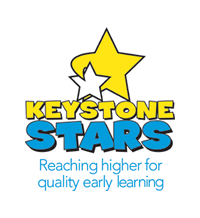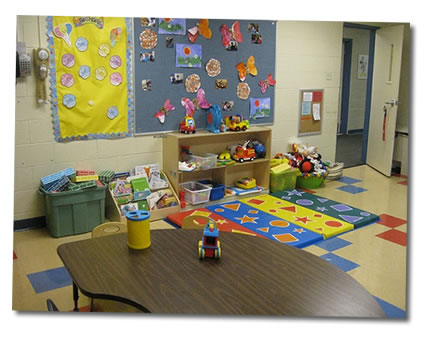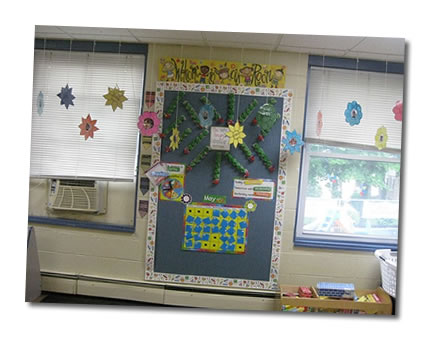School of Early Learning
Welcome to the School of Early Learning 

We are DHS Certified and a Keystone Stars Level 2 Program.
The Temple Beth Torah School of Early Learning at Old York Road Temple – Beth Am is busy each day nurturing, caring for and educating the children of our future. From the First Steppers to Kindergarteners, each class engages their students in a variety of activities. These activities range from interactive programs, daily specials to academic skills so that the children are always enriched and engaged. The teachers promote kindness, manners, respect and creativity. We pride ourselves on treating each child as an individual as we work towards helping them achieve their greatest potential.
We are proud to offer a variety of options both in the number of days and length of day. Our Hours are 7:30a.m.-5:00p.m. Monday- Friday.
- First-steppers (14 months – 24 months) programs are available 2, 3 or 5 days per week.
- Toddler (24 months – 30 months) programs are available 2, 3 or 5 days per week.
- Preschool program (3 & 4 year olds) offered 3 or 5 days per week.
- Pre-K/K (4 by Sept 1 & 5 year olds) program offered 5 days per week.
Our Programs
First Steppers/Waddlers (Approx.14 months – 24 months)

This program is for children who are developmentally ready for a classroom setting. The class provides an opportunity for young children to experience time away from their parents in a small group setting. They will experience a language rich environment. Compete with developmentally appropriate toys, interactive music and art experiences, story time, snack and opportunities for gross motor activities. The class maintains an adult to child ratio of 1:5.
Objectives:
Language Development
- Responds to verbal conversations & questions
- Points to objects when named
Emergent Literacy
- Repeats patterns in rhymes and songs
- Vocalizes sounds/responses to books being read
Creative Expression
- Uses senses when exploring
- Uses a variety of art tools
- Imitates sounds and facial expressions
Social & Emotional Development
- Recognizes family members
- Move from parallel to group play
Physical & Development
- Explores new material or events
- Stacks blocks or toys
- Manipulate peg puzzle pieces
- Becomes aware of body parts
Here is a sampling of a few of our themes:
- Seasons, Safety- school & home, Body Parts
- Animals-house (pets), colors, Nursery Rhymes, Jewish holidays
- Me, Myself & I Family, Animals- Farm, Counting
Toddlers (Approx.24 months – 30 months)

Children in this class are two by September 1. In this class, we strive to expand communication and play skills. Children will explore shapes, colors, numbers, seasons, holidays, weather and community through games, puzzles, projects, stories, songs, finger plays, and movement activities. Holiday celebrations, Hebrew program, weekly Shabbat, music and gym are all part of the school year program.
Objectives:
Language Development
- Answers simple questions about a story, rhyme, or song
- Uses words to communicate wants and needs
Emergent Literacy
- Plays with words that sound the same or different
- Scribbles
Mathematics
- Sorts items by shape
- Begins to understand time sequence of daily routines
- Counting 1-10
Learning about the World
- Recognizes ways living things interact with the environment
- Describes what is observed
Creative Expression
- Talks about art creations
- Uses play props in dramatic play
Social & Emotional Development
- Identifies places at school that correspond to places at home
- Participates in simple interactions with others
Approaches to Learning
- Makes independent choices
- Uses objects as tools
Physical Health & Development
- Uses crayons, makers, and paintbrushes with increasing control
- Begins to name & use body parts: jumping, throwing, hopping, marching
Preschool (3 and 4 year olds)
Children will expand their academic and social skills. Group games and independent self-help skills are encouraged. Numbers, shapes, colors, letter recognition, phonemic awareness, pre-math skills, daily circle time, fine motor activities, music and movement games and developmentally appropriate drawing/writing experiences are all part of their day. Holiday celebrations, Hebrew program, weekly Shabbat, music and gym are all part of the school year program.
Units/Activities – numbers, letter of the week (sound, identification, writing), seasonal concepts, Jewish holiday stories and symbols, story structure, 5 senses, dinosaurs, sink/float, community helpers, gardening, insects, board games, cooking.
Language Development
- Uses language to communicate ideas, feelings, needs and questions.
- Initiates and responds in conversation and discussion.
- Spoken sentences increase in length and grammatical complexity.
Literacy
- Begins to understand story sequence.
- Communicates through scribbling/writing.
- Exposure to letters in the alphabet
- Connects own life with related events in books.
- Progresses from using letter-like symbols to identifying familiar words.
Mathematics
- Compares quantities of two groups of objects.
- Sorts objects by color, size or shape
- Number recognition & one to one correspondence
- Duplicates and extends simple patterns.
- Combines, separates and names “how many” objects.
Science
- Utilizes different methods to solve problems.
- Classifies items that belong together.
- Discusses common properties, differences, and comparisons or objects.
- Make predictions and explanations based on past experiences.
Creative Expression
- Creates more detail drawings, paintings, and artwork.
- Moves in time to difference music rhythms.
- Names different shapes, lines, colors, forms, and materials
- Dances with control
Social & Emotional Development
- Recognizes familiar places in the community.
- Begins to understand how his or her actions affect others.
- Gains knowledge of people in community
- Takes turns in games and using materials.
Approaches to Learning
- Approaches activities with increased imagination and inventiveness
- Concentrates increasingly on tasks or interactions.
Physical Health & Development
- Develops increasing eye-hand coordination (stringing beads, using scissors)
- Becomes more self-sufficient in using tissues, washing hands, and other self-help skills.
- Grows in dexterity in using pencils, markers, and paintbrushes, scissors.
- Develops independence in hygiene and personal care.
Pre-Kindergarten/Kindergarten (4 by September 1 and 5 year olds)
Pre-K/Kindergarten Instruction: Our Pre-k/Kindergarten class is comprised of students who are not eligible to enter kindergarten in their public school based on missing the cut-off and those children whose families chose to enroll their children in a private kindergarten experience.
Reading:
- Phonemic Awareness & Decoding
- Discriminate, recall and recognize letters
- Produce rhyming word pairs
- Chunk words into individual sounds
- Identify the beginning sounds of words
- Identify the ending sounds of words
- Identify and express sound/letter connection
- Match words that begin with the same sound
- Explore the following word families
- -at, -am, -et, -en. -in, it, -op, -ut, -al, -and, -ing
- Connect sounds to make words
- Build a sight vocabulary consisting of the following words:
- and, in, will, did, like, you, can, we, not, but, go, a, I, the
Story Structure/Comprehension
- Predict what story is about using picture clues
- Identify setting and characters
- Understand beginning, middle and end of story
- Ability to predict what happened next in a story
- Create an alternative ending for a story
- Talk about jobs of author and illustrator
- Identify problem in a story
- Identify solution in a story
- Engage in discussion related to stories
- Exposure to a variety forms of poetry.
Communication/Writing
- Demonstrates age appropriate pincer grasps when holding writing tools
- Demonstrates the ability to write upper case letters of the alphabet
- Demonstrates the ability to write the lower case letters of the alphabet
- Participates in journal writing in response to a prompt or shared literature experience
- Utilizes invented spelling during journal writing
- Demonstrate knowledge of sound/letter connection through the use of a word book- draw pictures and or write words corresponding to a particular letter.
Listening
- Follows multi-step directions
- Follows directions during group instructions
- Follows directions during small group
- Follows directions related to paper/pencil tasks
- Listens when others are speaking
Speaking
- Contributes in group discussions
- Speaks in complete sentences
- Uses descriptive words when story telling
- Answers questions appropriately/ on topic
Science
- Habitats/Animals
- Explore animal environments
- Discuss living vs. non-living
- How animals protest themselvesL
- How animals move (fly, burrow, and swim)
Solar System
- Identify planets and their characteristics
- Name the planets in our solar system
- Talk about how planets may have been formed
- Demonstrate the rotation of the sun, earth and moon
- Explore the numbers of moons of each planet
- Ability to recreate the solar system for display
Dinosaurs
- Explore using a KWL chart
- Understanding of meat vs. plant eaters
- Participate in a dinosaur dig
- Talk about the job of a paleontologist
- Chart the different characteristics of dinosaurs
Nutrition
- Understand the food pyramid
- Sample, categorize, graph and compare food from the different food groups
- Talk about and identify foods that contain large amounts of fats,
- amino acids, sugar and carbs.
- Identify foods that help particular parts of your body (ie. Milk/bones, carrots/eyes, etc.)
Social Studies/Safety:
- Explore Friendships
- Identify characteristics of friends
- Identify likes and dislikes
- Explore working with a partner on a task
Explore Native American & Pilgrims
- Explore the food and cooking techniques
- Retell and act out the voyage on the Mayflower
- Prepare a feast with the children
- Have a basic understanding of like then and now, travel houses, tools, food storage, etc.
Math:
- Numbers 1-10
- Can read numbers
- Can write numbers
- Identify one-to-to correspondence
- Represents & understands “0”
- Understands more & less
Counting
- Forward beyond 100
- Backwards from 20
- Count by 2’s, 5’s & 10’s
- Explore symmetry of objects
Sorting Positions & Patterns
- Explore block patterns
- Sort objects based on attributes
- Identify and label attributes
- Create and extend AB patterns
- Create and extend ABBA, AABB, ABC patterns, etc.
- Data & Graphing
- Constructs a picture graph
- Constructs a bar graph
- Makes comparison from data
Shapes
- Identifies geometric shapes
- Describes attributes of shapes
- Compare shapes
Fractions, Time, Money, Length, Weight & Capacity
- Explore measurement
- Comparing lengths
- Compare heights objects
- Explore/use a balance scale
- Addition, Subtraction
- Numbers great than 10
Understand & celebrate Jewish & secular holidays
- Appreciate and embrace diversity
- Identify differences in celebrations
- Learn Hebrew words, numbers, family members, animals
- Exposure the some everyday Hebrew phrases
- Celebrate Shabbat weekly
Overall Objectives:
- Language Development
- Spoken sentences increase in length and grammatical complexity
Emergent Literacy
- Identifying letters and letter/sound connection
- Understanding that letters for words
- Connects own life with related events in books
Mathematics
- Basic understanding of time, measurement, addition, subtraction & money
- Duplicates and extends simple patterns
- Combines, separates, and names “how many” objects
Creative Expression
- Creates more detailed drawings, paintings and other artwork
- Moves in time to different music rhythms
Learning about the World
- Exposure to languages of other cultures
Social and Emotional Development
- Gains knowledge of people in the community
- Takes turns in games and using materials
Approaches to Learning
- Growth in eagerness to learn and discuss a wide range of topics
- Increased ability to set goals and follow through
Physical Health & Development
- Develops independence in the area of hygiene and personal care
- Shows growth in dexterity while using pencils, markers and paintbrushes
